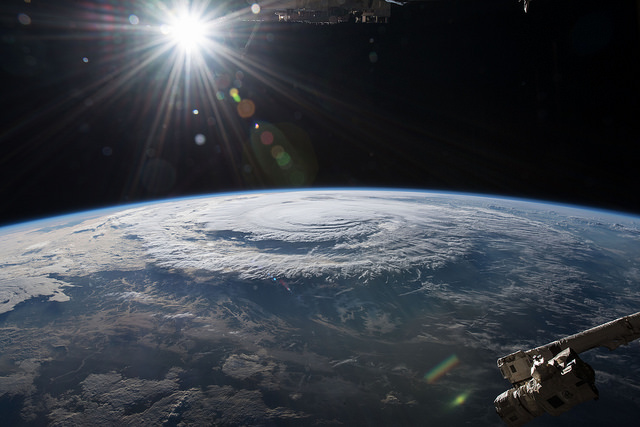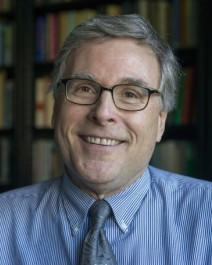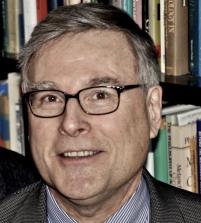Renaming the Whirlwind
Hurricane Florence and Typhoon Mangkhut, and last year’s Hurricane Maria, not only left devastation and death in their wakes, but also provoked religious questions
 Hurricane Florence and Typhoon Mangkhut, and last year’s Hurricane Maria, not only left devastation and death in their wakes, but also provoked religious questions. They have certainly exposed the moral fiber of a culture, sometimes to its shame.
Hurricane Florence and Typhoon Mangkhut, and last year’s Hurricane Maria, not only left devastation and death in their wakes, but also provoked religious questions. They have certainly exposed the moral fiber of a culture, sometimes to its shame.
Perhaps unsurprisingly, the whirlwind is a prominent metaphor for forces that rip apart peoples’ lives and demand rebuilding. Culturally, socially, and religiously, we now seem to be faced with a worldwide Category Four hurricane: the global sex abuse scandal in the Catholic church; systemic racism and police violence; virulent nationalism, and with it Islamophobia and attacks on democratic rule; the global immigration crisis; the divide among American Christians over President Trump; global climate change and its deniers; the plight of women’s rights; decadent consumerism that sells and eats everything; and so forth. The velocity of the global storm is increasing, and the waters are rising. It does not appear likely that our moral/religious hurricane will be downgraded—ever.
Each storm racking the globe has obvious moral and political meanings, but dig just a bit deeper and one finds religious beliefs and practices at work, too. Unremarkably, different “religions” (however you define them) construe differently the relation between their beliefs and practices, on the one hand, and their moral values and attitudes (again, however defined), on the other. Grant as well that religious convictions are sometimes compromised by powerful interests, and, conversely, that religious people seek to inscribe their convictions in law, political institutions, and even textbooks. But the fact is that the current worldwide whirlwind hardly seems like the “twilight of the gods” heralded by twentieth-century “secularization theory” and its predecessors like the Norse myth Ragnarök about the death of the gods, Richard Wagner’s Götterdämmerung, or Friedrich Nietzsche’s Twilight of the Idols. Gods may come and go, but plainly the whirlwind of religion and morality is on the move at high speeds. How then are we to understand our global condition?
Because of the present situation, social thinkers and cultural critics—as well as philosophers and theologians—speak of our age as “post-secular,” meaning a condition in which there are a variety of ways of being “religious” and/or “secular.” Yet it is not at all clear that “post-secular” fully names the force and velocity of our situation. Borrowing from the Hebrew Bible (especially the Book of Job), and also the University of Chicago theologian Langdon Gilkey, consider the insights afforded by the image of the whirlwind. Taken from a natural phenomenon, the whirlwind is a symbol of disorder, chaos, maybe creation, used, by Job and Gilkey alike, to speak about the divine. Yet I am “renaming” the whirlwind since I am using the image not to think about God or the divine self-disclosure, but about our all-too-human condition. What then do we find?
If one looks to Ancient Athens (think Antigone or Socrates), the Hebrew Prophets, the eighteenth-century Enlightenment in the West, debates about philosophy in Islam, the civil rights movement (closer to home), Orthodoxy and the Russian Revolution, and, in fact, all around the globe and throughout time, some of the great changes in societies have occurred in moments when religion and morality collide. Socrates was put to death for “corrupting the youth and creating new gods.” Antigone’s filial piety conflicted with Creon’s political rule. Christians were found on both sides of civil rights. Enlightenment thinkers, including the Founding Fathers of the United States, sought to end religious conflict and find a more basic morality. One could go on. History and literature are themselves hurricanes of conflicting beliefs, values, and peoples.
What is the lesson in all of this? The descriptors of our age as “post-” (post-secular, post-modern, post-colonial) have their rightful place and some real truth. At the same time, they might just gloss over the potential that lies within this whirlwind of debates about the relation of morality and religion. Religious and moral collision, viewed historically, can be a context for moral and religious creativity. And that creativity, one hopes, will temper religious fervor through respect for, and an enhancing of, human and non-human life, even as the religions can deepen, expand, and invigorate our moral resolution. This too is happening worldwide with the global environmental movement and the greening of religions, the reclaiming of forms of religious humanism in many places, and the struggle for more just and diverse societies. At issue is whether people will render the whirlwind of religion and morality productive, or rather let it level societies and nations.
We live forward but think backward, as Søren Kierkegaard once put it. So, perhaps, we are condemned, like this essay, to see ourselves in terms of what we live after, always thinking “post-wise” and historically. But in living forward one needs to reimagine, and rename, the present turbulence, to be open to the appearance of new possibilities while remaining ever mindful of the power of destructive forces. Put otherwise, one of the drivers of historical and social destruction, as well as creativity, seems to be the ongoing tension between what people regard as holy and what they conceive as good and just and right.
How then do we understand the storm of our time and orient life in its path? Sightings is one response to that query.
Image: Hurricane Florence as it made landfall near Wrightsville Beach, N.C., pictured from the International Space Station, September 14, 2018 | Photo Credit: NASA Johnson/Flickr (cc)


 William Schweiker (PhD’85) is the Edward L. Ryerson Distinguished Service Professor of Theological Ethics at the University of Chicago Divinity School.
William Schweiker (PhD’85) is the Edward L. Ryerson Distinguished Service Professor of Theological Ethics at the University of Chicago Divinity School.